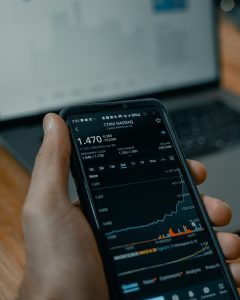Forex trading has gained immense popularity in recent years, thanks to the potential for high profits and accessibility to individuals from all walks of life. One of the most crucial decisions traders have to make is choosing the right broker for CFD (Contract for Difference) forex trading. With countless options available in the market, it can be overwhelming to determine which broker will best suit your trading needs. In this article, we will guide you through the essential factors to consider when choosing a broker for CFD forex trading.
Regulation and Security
The first and foremost factor to consider when selecting a broker is regulation and security. The forex market is decentralized, which means it is not governed by a single regulatory authority. However, reputable brokers are regulated by recognized financial authorities. These regulatory bodies ensure that brokers adhere to strict guidelines, which include maintaining segregated client accounts, providing transparent pricing, and ensuring security measures to protect clients’ funds.
Some of the well-known regulatory bodies include the Financial Conduct Authority (FCA) in the United Kingdom, the Australian Securities and Investments Commission (ASIC), and the Cyprus Securities and Exchange Commission (CySEC). Research the broker’s regulatory status and verify their registration with the relevant authorities to ensure the safety of your funds.
Trading Platform and Tools
The trading platform provided by the broker is another crucial aspect to consider. A user-friendly and feature-rich trading platform can enhance your trading experience and improve your chances of success. Look for a platform that offers real-time market data, advanced charting tools, technical indicators, and the ability to execute trades quickly and efficiently. Additionally, ensure that the platform is available on multiple devices, including desktop, web, and mobile, allowing you to trade anytime, anywhere.
Educational Resources
Forex trading is a complex field that requires continuous learning and improvement. A broker that offers a comprehensive range of educational resources can be immensely beneficial, especially for novice traders. Look for brokers that provide educational materials such as tutorials, webinars, e-books, and video courses. These resources can help you develop a solid understanding of forex trading concepts, technical analysis, risk management, and trading strategies.
Customer Support
Reliable customer support is crucial when it comes to forex trading. The forex market operates 24 hours a day, five days a week, and having access to prompt and efficient customer support is essential. Look for brokers that offer multiple channels of communication, including live chat, email, and phone support. It is also advisable to test their customer support responsiveness before opening an account by reaching out with any questions or concerns.
Account Types and Minimum Deposit
Brokers offer different types of trading accounts to cater to the diverse needs of traders. Consider the account types offered by the broker and see if they align with your trading style and preferences. Additionally, check the minimum deposit requirements as it can vary significantly between brokers. While some brokers offer accounts with a low minimum deposit, others may require a substantial initial investment. Assess your budget and choose a broker that provides account options suitable for your financial situation.
Spreads and Commissions
Spreads and commissions are the costs associated with trading forex. Spreads are the difference between the buy and sell price of a currency pair, while commissions are charges imposed by the broker for executing trades. Lower spreads and commissions can significantly impact your trading profitability, especially if you are an active trader. However, be cautious of brokers offering extremely low spreads as they may compensate for it by widening spreads during volatile market conditions.
Leverage
Leverage is a double-edged sword in forex trading. It amplifies both potential profits and losses. Brokers offer different leverage ratios, allowing traders to control larger positions with a smaller initial capital outlay. While high leverage can be enticing, it also increases the risk of significant losses. Ensure you understand the implications of leverage and choose a broker that offers leverage ratios that align with your risk appetite and trading strategy.
Deposit and Withdrawal Options
Consider the deposit and withdrawal options offered by the broker. A reputable broker should provide a variety of secure and convenient methods for depositing and withdrawing funds, such as bank transfers, credit/debit cards, and electronic payment systems like PayPal or Skrill. Additionally, check for any fees associated with deposits and withdrawals, as excessive charges can eat into your trading profits.
Demo Account
Lastly, consider whether the broker offers a demo account. A demo account allows you to practice trading with virtual funds, giving you the opportunity to familiarize yourself with the broker’s platform and test your strategies in a risk-free environment. A demo account is an invaluable tool for both novice and experienced traders, and brokers that provide this option demonstrate their commitment to their clients’ success.
In conclusion, choosing the right broker for CFD forex trading is a crucial step towards a successful trading journey. Consider factors such as regulation and security, trading platform and tools, educational resources, customer support, account types, spreads and commissions, leverage, deposit and withdrawal options, and the availability of a demo account. By thoroughly researching and assessing these factors, you can make an informed decision and find a broker that aligns with your trading goals and preferences.





